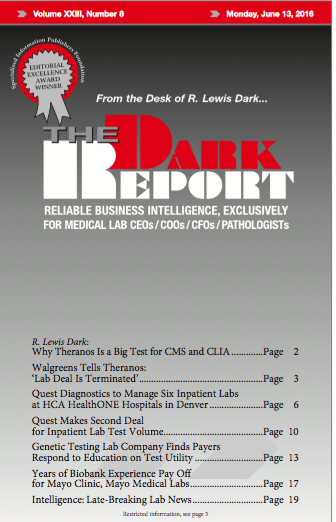CEO SUMMARY: In recent years, insurers have raised the bar and become much tougher when making coverage and reimbursement decisions for molecular assays, genomic, and genetic tests. Yet several lab testing companies are having good success at demonstrating the validity and clinical utility of their assays. Among them is Foundation Medicine, of Cambridge, Mass. In …
Genetic Testing Lab Finds Payers Respond To Education on Test Utility Read More »
To access this post, you must purchase The Dark Report.


